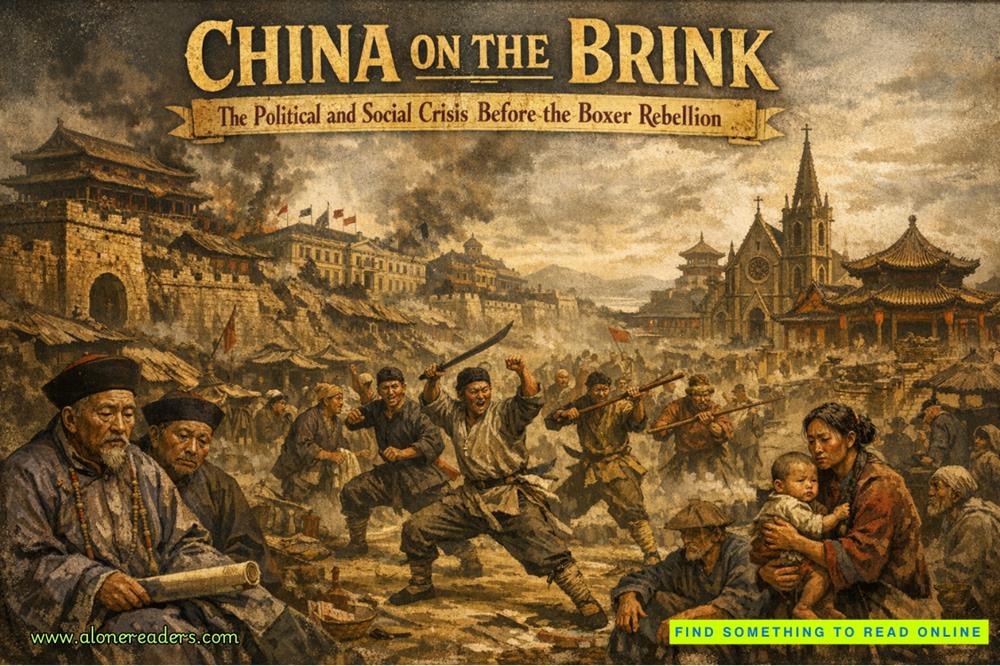Marcus shifted, his attention sharpening though he didn't interrupt.
"First night, I woke up completely disoriented. The cabin was pitch black—no streetlights and no ambient glow from the city. There was…" I swallowed against the memory. "Nothing. I couldn't tell whether my eyes were open or closed. I couldn't find the edges of myself in all that dark."
"What happened?"
"I panicked. Started screaming. Woke up half the cabin." I snickered slightly. "The counselor told me I was being dramatic. He said the fear was all in my head, but it wasn't really the dark that terrified me—it was that sensation of disappearing. Of not being able to orient myself in space."
Marcus's hand covered mine where it still rested on his wrist. The contact grounded me.
"After that, I started watching people. Analyzing how they moved and what those patterns revealed. I figured if I could read everyone else clearly enough, I'd never feel that lost again." I looked into his eyes. "Never thought I'd end up using those skills to track someone who turns destruction into art."
"We all have our ways of fighting back against chaos." Marcus spoke the words against my temple, his breath stirring my hair. "You analyze. I swim laps until my shoulders burn."
The record had ended, leaving only the soft clicks of the needle against empty grooves. Neither of us moved to change it. We'd earned the silence.
My body finally started to relax despite my racing mind, quieted by Marcus's steady warmth and the weight of the blanket across our legs. The wool had traces of wood smoke—not the acrid chemical stench from my apartment fire, but something older and almost comforting.
"Why do you let me see this much of you?" I asked, the question slipping out before I could examine it too closely.
His chest rose and fell against my back in a slow breath. "Because you look at everything like it's evidence, but you never make me feel like you're dissecting me." His arms tightened around my body. "And because you understand what it means to be haunted by patterns."
I turned, pressing my face into the hollow of his throat where his pulse beat strong and steady. His skin was warm, alive, and present—everything my analytical mind needed to believe the moment was real.
"Try to sleep," he murmured, one hand coming up to rake through my hair.
For once, I didn't argue. I didn't try to calculate odds or analyze patterns. I let myself sink into the shelter of his body,listening to the soft rain against the windows and the steady sound of his breathing.
Sleep crept closer. Marcus's fingers continued their slow path through my hair, each stroke methodical like he was memorizing the texture. His other hand rested against my ribs.
"You're still thinking," Marcus murmured. "I hear your brain working."
"Force of habit." I traced the scar on his forearm where it crossed my chest—a raised line from some long-ago fire. "But it's quieter now."
He exhaled. "Progress."
Tomorrow would bring new threats, more evidence to analyze, and the weight of whatever Elliot had planned. But here, wrapped in the warmth and the trust we'd built between us, I surrendered to exhaustion.
Marcus's breathing deepened, his hand resting in my hair as sleep finally claimed him. I listened to his heartbeat, strong and steady beneath my ear, and let it carry me under. I wasn't disappearing. I wasn't unraveling into the dark. The heartbeat was a solid anchor, giving me permission to let myself drift.
My last conscious thought wasn't about burn patterns, chemical accelerants, or the precise temperature required to transform evidence into ash.
It was simply this: I was home.
Chapter nineteen
James
Marcus's arm lay heavy across my waist as the morning broke. Somewhere in the wee hours of the morning, we'd made it back to his bed. His breath warmed the nape of my neck.
We had one day left before heading to Coeur d'Alene. Two days left before the race and a grim reckoning.
The sheets tangled around us held our mingled scents—clean sweat, faint traces of fabric softener, and that indefinable warmth that had become home when I wasn't looking. My analytical mind tried to sort it and break it into component parts like any other equation, but some things defied clinical evaluation.
Like the revelation swelling inside me, threatening to burst:I love him.
It wasn't a sudden epiphany. No, it had been building, slow and relentless, like pressure simmering beneath a sealed lid. Ignored, denied, but never absent.
Now, it crystallized into those three simple words.I love him.















